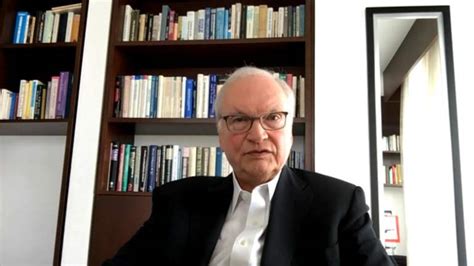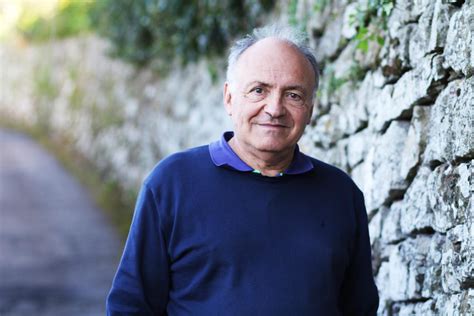A Quote by John Taylor
In every principle presented to us, our first inquiry should be, "Is it true?" "Does it emanate from God?" If he is its Author it can be sustained just as much as any other truth in natural philosophy; if false it should be opposed and exposed just as much as any other error.
Related Quotes
Every failure is a step to success. Every detection of what is false directs us towards what is true: every trial exhausts some tempting form of error. Not only so; but scarcely any attempt is entirely a failure; scarcely any theory, the result of steady thought, is altogether false; no tempting form of Error is without some latent charm derived from Truth.
[Mr. Gifford] made it much his business to deliver the people of God from all those false and unsound rests that by nature we are prone to make and take to our souls. He pressed us to take special heed that we took not up any truth upon trust - as from this or that, or any other man or men - but to cry mightily to God that He would convince us of the reality thereof, and set us down therein by his own Spirit in the holy word.
Reason and free inquiry are the only effective agents against error. Give a loose to them, they will support the true religion by bringing every false one to their tribunal, to the test of their investigation. They are the natural enemies of error and error only. Had not the Roman government permitted free inquiry, Christianity could never have been introduced. Had not free inquiry been indulged at the era of the Reformation, the corruption of Christianity could not have been purged away.
Error is a supposition that pleasure and pain, that intelligence, substance, life, are existent in matter. Error is neither Mind nor one of Mind's faculties. Error is the contradiction of Truth. Error is a belief without understanding. Error is unreal because untrue. It is that which stemma to be and is not. If error were true, its truth would be error, and we should have a self-evident absurdity -namely, erroneous truth. Thus we should continue to lose the standard of Truth.
Fiction can produce truth, and truth can be false. What does it mean to say that it's true that, what, two out of six people in this city are starving? That's true, but that is only true because the conditions we live under are completely wrong - that should not be true, and it is. And in something like Sarah Polley's film, her fictions deliver so much truth. The retellings and the simulations and the theatrical aspects are what deliver all the truth.
Our job should be like any other forensic scientist's - we should be truth seekers who are not partisan, who do not have any interest in the outcome, who call it as we see it no matter the consequences. But it seems a lot easier for chemists and anthropologists and pathologists to take that neutral role than it does for psychiatrists.
A false identity is any lie that contradicts our God-given identities through Scripture. These false identities can be created by ourselves because of sin in our lives, choices made, or wrong turns taken and the regret, guilt, and shame that follows. Other false identities are handed to us by outside sources, maybe a damaging word spoken to us by someone or a childhood of abuse. However, not all false identities are negative on the surface, such as successful, attractive, wealthy, athletic, or talented. But even those identities can become false when we place too much of our weight on them.
It has been the error of the schools to teach astronomy, and all the other sciences, and subjects of natural philosophy, as accomplishments only; whereas they should be taught theologically, or with reference to the Being who is the author of them: for all the principles of science are of divine origin. Man cannot make, or invent, or contrive principles: he can only discover them; and he ought to look through the discovery to the Author.
In questions of this sort there are two things to be observed. First, that the truth of the Scriptures be inviolably maintained. Secondly, since Scripture doth admit of diverse interpretations, that no one cling to any particular exposition with such pertinacity that, if what he supposed to be the teaching of Scripture should afterward turn out to be clearly false, he should nevertheless still presume to put it forward, lest thereby the sacred Scriptures should be exposed to the derision of unbelievers and the way of salvation should be closed to them.
Something similar happens on the other side of the equation: Giving kindness does us as much good as receiving it. . . . The true benefit of kindness is being kind. Perhaps more than any other factor, kindness gives meaning and value to our life, raises us above our troubles and our battles, and makes us feel good about ourselves.
We have hitherto considered only two possibilities: that the received opinion may be false, and some other opinion, consequently, true; or that, the received opinion being true, a conflict with the opposite error is essential to a clear apprehension and deep feeling of its truth. But there is a commoner case than either of these; when the conflicting doctrines, instead of being one true and the other false, share the truth between them.
It is never to be expected in a revolution that every man is to change his opinion at the same moment. There never yet was any truth or any principle so irresistibly obvious that all men believed it at once. Time and reason must cooperate with each other to the final establishment of any principle; and therefore those who may happen to be first convinced have not a right to persecute others, on whom conviction operates more slowly. The moral principle of revolutions is to instruct, not to destroy.
Geology, perhaps more than any other department of natural philosophy, is a science of contemplation. It requires no experience or complicated apparatus, no minute processes upon the unknown processes of matter. It demands only an enquiring mind and senses alive to the facts almost everywhere presented in nature. And as it may be acquired without much difficulty, so it may be improved without much painful exertion.








































